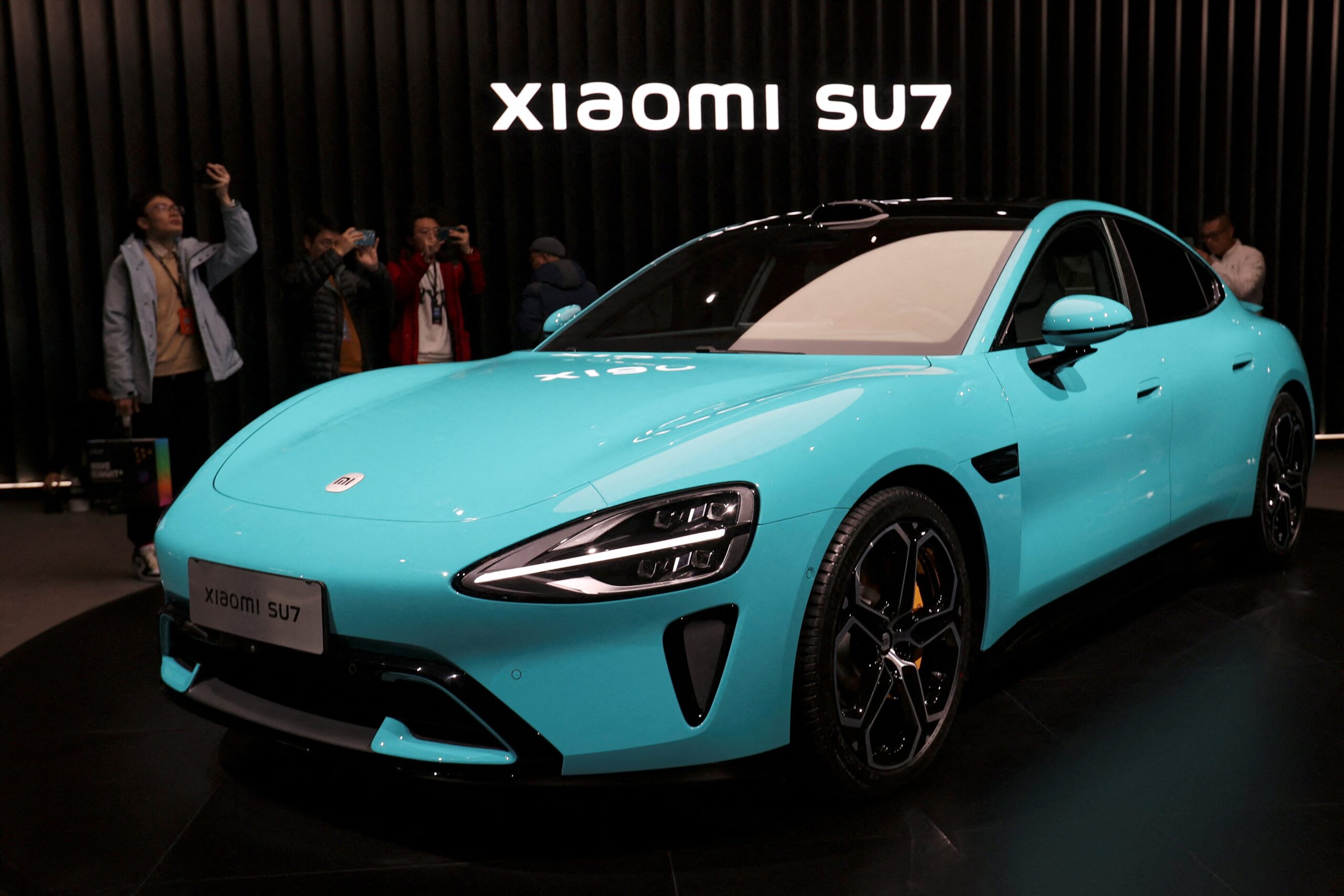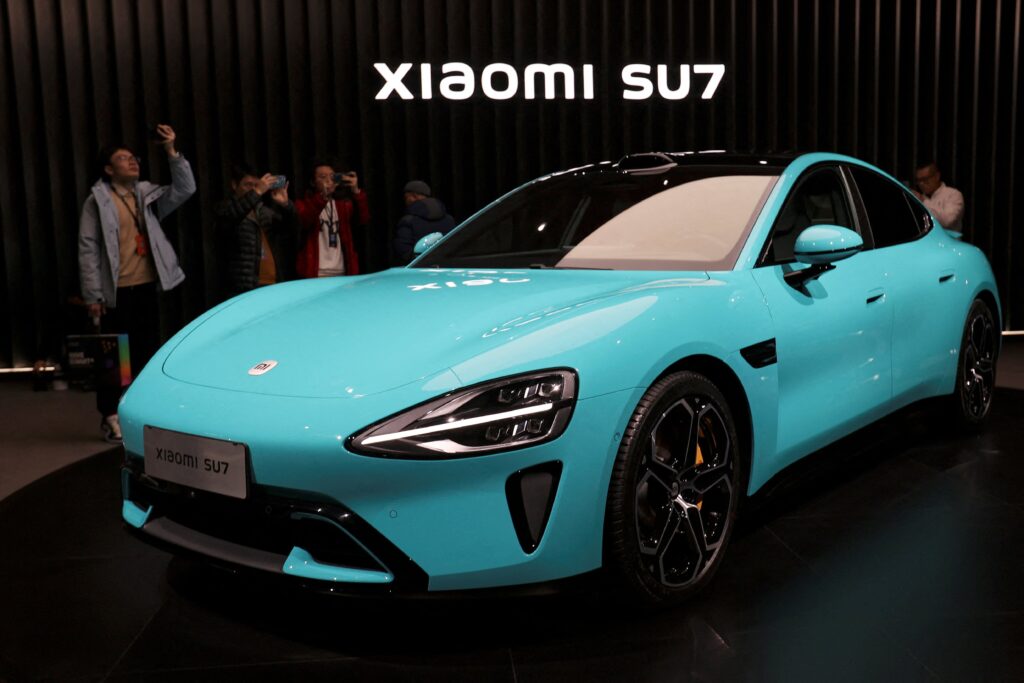Chinese tech giant Xiaomi Corp. has made a significant investment to bolster its electric vehicle (EV) production capabilities. The company purchased a 53-hectare (131-acre) plot of land in Beijing for 842 million yuan ($116 million), marking a strategic move to expand its presence in the burgeoning EV market. This new site, located in the capital’s Yizhuang district, is near Xiaomi’s existing EV factory, allowing for streamlined operations and expansion.
Strategic Expansion in a Competitive Market

Image Source: reuters.com
Xiaomi’s latest acquisition underscores its commitment to becoming a key player in the EV industry. The land was acquired by Xiaomi subsidiary Xiaomi Jingxi Technology Ltd. and is intended for the development of high-end automobiles and new energy intelligent vehicles, according to filings from the Beijing Municipal Commission of Planning and Natural Resources. This purchase follows the early success of Xiaomi’s debut electric sedan, the SU7, which launched in March with a base price of 215,900 yuan.
The company’s foray into the automotive sector is part of CEO Lei Jun’s ambitious $10 billion plan to establish Xiaomi as a major force in the EV market. As of this month, Xiaomi has delivered 30,000 vehicles and is on track to reach its initial sales target of 100,000 units by November 2024. This rapid growth contrasts sharply with the struggles faced by many of its competitors. The phasing out of national EV subsidies in 2022 and declining demand have led to financial difficulties for several EV makers, including WM Motor Technology Group and Human Horizons’ HiPhi brand.
Future Plans and Industry Impact
Xiaomi’s success in the EV market could serve as a blueprint for other tech companies looking to diversify. The firm, traditionally known for its smartphones, is not only focusing on sedans but also plans to produce a sport utility vehicle (SUV) akin to Tesla’s Model Y by 2025. This diversification within the EV sector reflects Xiaomi’s broader strategy to capture a significant market share by offering a range of vehicle types.
The new site in Yizhuang will facilitate the company’s ambitious production goals. Xiaomi has previously announced plans to commence the second phase of its car factory construction, which is scheduled to be completed by 2025. Once finished, the first phase of the factory will have an annual production capacity of 150,000 cars, significantly boosting Xiaomi’s manufacturing capabilities.
Xiaomi’s proactive approach and strategic investments highlight its readiness to compete in the high-stakes EV industry. By leveraging its technological expertise and expanding its production capacity, Xiaomi is positioning itself to become a leading player in the global electric vehicle market.

I am a law graduate from NLU Lucknow. I have a flair for creative writing and hence in my free time work as a freelance content writer.
